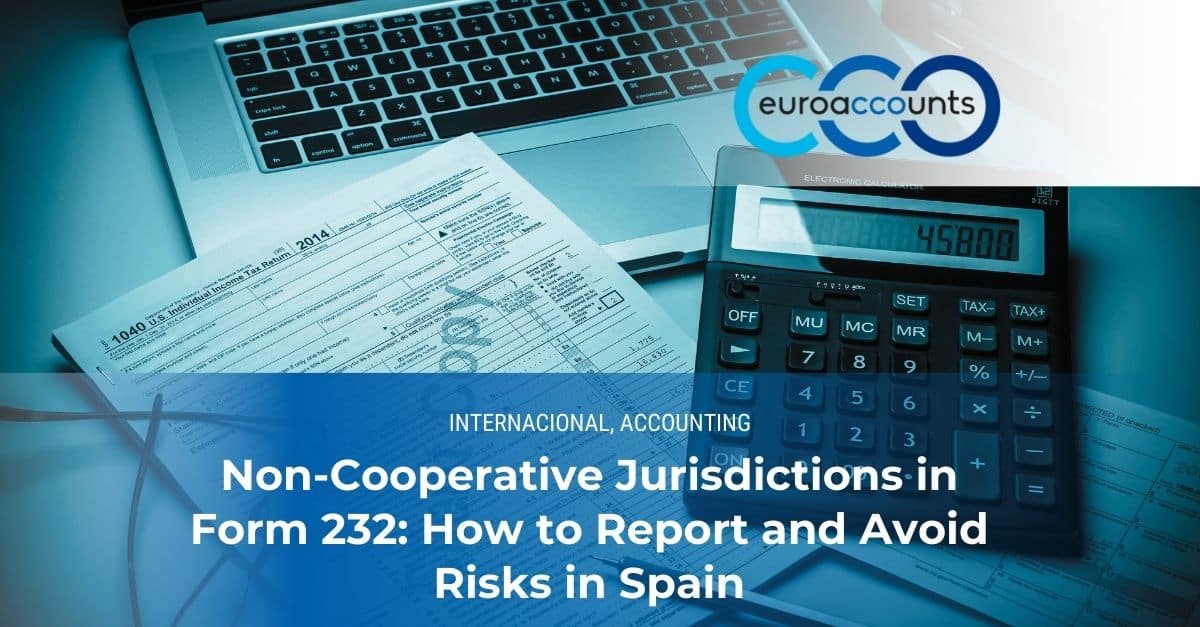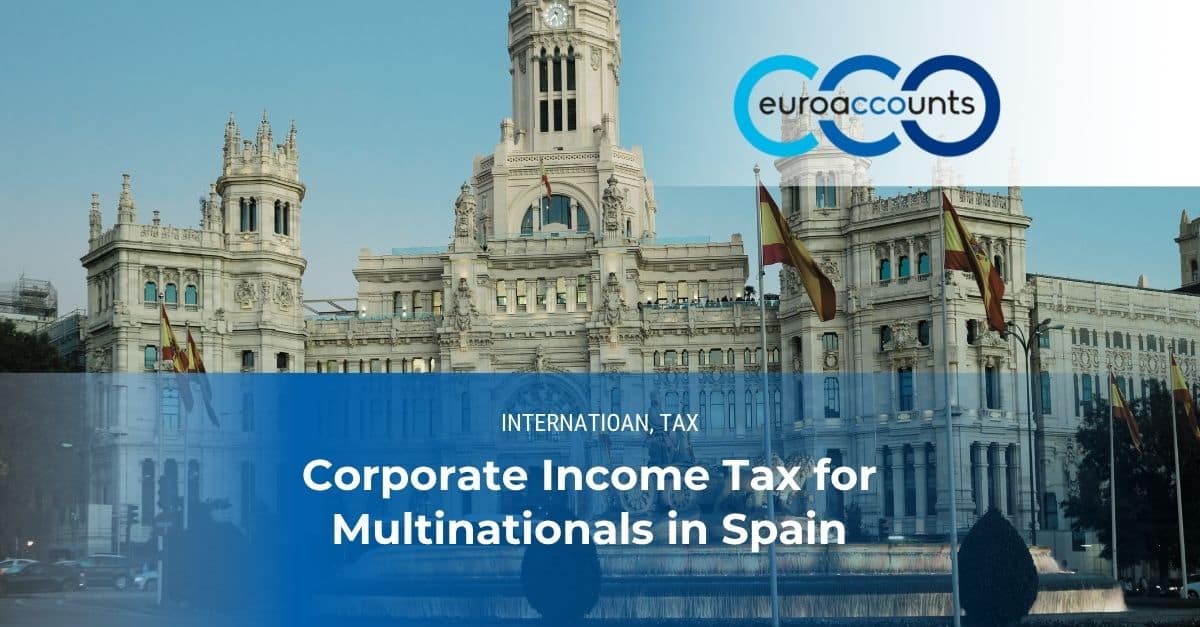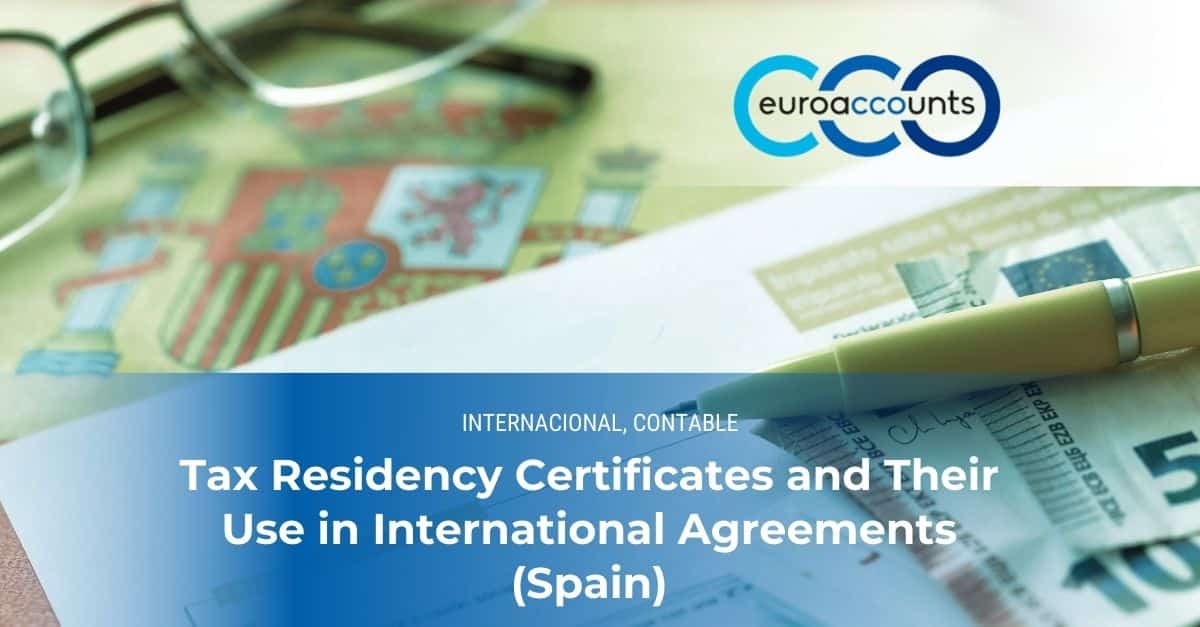Transactions with non-cooperative jurisdictions pose a critical challenge for multinational groups with subsidiaries in Spain. These jurisdictions, often associated with tax havens, are under scrutiny by the Spanish Tax Agency (AEAT) due to their potential for tax evasion. Properly reporting these transactions in Form 232 is essential to comply with Spanish regulations and avoid severe penalties.
This guide details how to identify non-cooperative jurisdictions, meet Form 232 obligations, and mitigate tax risks. It connects with our Form 232 guide, our article on avoiding double taxation, and our guide on tax residency certificates, offering a comprehensive approach for multinationals.
Are you managing transactions with entities in sensitive jurisdictions? Learn how to report them correctly and optimize your tax compliance with EUROACCOUNTS.
What Are Non-Cooperative Jurisdictions?
Definition According to Spanish and EU Regulations
Non-cooperative jurisdictions are countries or territories that fail to meet international standards for tax transparency and cooperation, as defined by Spanish regulations (Article 13.4 of the General Tax Law, LGT) and the EU list (Regulation EU 2016/1164). These jurisdictions lack automatic tax information exchange, apply harmful tax regimes, or facilitate opaque structures for tax avoidance.
In Spain, Royal Decree 1080/1991 and subsequent updates (e.g., Royal Decree 116/2023) govern the list of non-cooperative jurisdictions, replacing the outdated term “tax havens” in 2021 to reflect broader OECD and EU criteria.
Updated List and Differences with “Tax Havens”
The AEAT’s list of non-cooperative jurisdictions includes countries like Panama, the Cayman Islands, and Bermuda, updated periodically (check at www.aeat.es). Unlike “tax havens,” which focused on low or no taxation, non-cooperative jurisdictions also encompass countries with insufficient transparency or fiscal cooperation.
Table: Examples of Non-Cooperative Jurisdictions (2025)
| Jurisdiction | Characteristics | Impact on Form 232 |
|---|---|---|
| Panama | Low taxation, lack of automatic exchange | Mandatory reporting if transactions ≥€36,000 |
| Cayman Islands | Zero taxation, opaque structures | Requires proof of economic substance |
| Bermuda | Preferential tax regime | Strict justification in audits |
Note: Jurisdictions may be removed from the list if they sign tax information exchange agreements with Spain or the EU, as Andorra did in 2018.
Form 232: Obligations for Groups with Entities in These Jurisdictions
When to Report: €36,000 Threshold and Exceptions
Form 232, regulated by Order HFP/816/2017, requires reporting transactions with entities in non-cooperative jurisdictions if they exceed €36,000 annually, whether or not the entities are related parties. This includes:
- Transactions with any entity (related or unrelated) in these jurisdictions.
- Holdings in entities resident in non-cooperative jurisdictions.
Exceptions: Transactions are exempt from reporting if the entity proves economic substance (offices, employees, real activity) and is subject to a tax similar to Spain’s Corporate Income Tax (≥10% nominal rate, per Article 21 LIS).
Example: A Spanish subsidiary pays €50,000 in royalties to an entity in Panama. As it exceeds €36,000, it must be reported on Form 232 unless economic substance is proven.
Types of Transactions Affected: Loans, Royalties, Services
The most common transactions requiring reporting include:
- Intra-group loans: Interest payments to entities in non-cooperative jurisdictions.
- Royalties: Payments for licensing intangibles (patents, trademarks).
- Services: Payments for consulting, management, or technical services.
Example: A Spanish subsidiary contracts €40,000 in consulting services with an entity in the Cayman Islands. It must be reported on Form 232, with documentation justifying market value (e.g., Transactional Net Margin Method, TNMM).
Common Errors and Penalties for Omissions
Common Errors: Market Value, Technical Omissions
Frequent mistakes when reporting on Form 232 include:
- Incorrect market value: Failing to justify transfer pricing with OECD methods (e.g., CUP, TNMM).
- Omissions: Not reporting transactions exceeding €36,000.
- Lack of economic substance: Failing to prove real activity in the non-cooperative jurisdiction.
Example: A Spanish subsidiary omits a €100,000 loan to an entity in Bermuda. The AEAT detects the omission during an audit, applying tax adjustments and penalties.
Penalties: Minimums, Aggravating Factors, and Real Examples
Penalties for non-compliance with Form 232, per Article 198 of the LGT, include:
- €1,000 per incorrect or omitted data: Minimum €3,000 per return.
- 1% of the unreported transaction value: E.g., €1,000 for a €100,000 omitted royalty.
- Aggravating factors: Fines up to €10,000 for fraudulent documentation (Article 201, LGT).
Realistic Example: A multinational failed to report a €50,000 service with an entity in Panama on Form 232. The AEAT imposed a €3,000 minimum penalty plus €500 (1% of the value), totaling €3,500.
Documentation and Traceability Strategies
How to Justify Legitimate Transactions in Non-Cooperative Jurisdictions
To avoid tax adjustments, transactions must comply with OECD arm’s length principles and demonstrate economic substance:
- Documentation: Contracts, invoices, and transfer pricing analysis (Local File, Master File).
- Economic substance: Evidence of offices, employees, and real activity in the jurisdiction (e.g., organizational chart, payroll records).
- Certificates: Tax residency certificates or information exchange agreements, if applicable.
Example: A Spanish subsidiary pays €60,000 in royalties to an entity in the Cayman Islands. It documents the payment with a contract, a TNMM analysis, and proof of economic substance (an office with 5 employees), avoiding audit adjustments.
Consistency Between Form 232, Local File, and Form 200
The AEAT requires consistency between:
- Form 232: Reports transactions with non-cooperative jurisdictions.
- Local File/Master File: Justifies transfer pricing.
- Form 200: Reflects the Corporate Income Tax taxable base.
Example: A €200,000 loan to an entity in Bermuda is reported on Form 232 with a 3% interest rate (justified by the CUP method). The Local File documents the transaction, and Form 200 reflects deductible interest, ensuring traceability.
Check our Form 232 guide to align your reporting.
How EUROACCOUNTS Can Help You
Verification of Sensitive Transactions
EUROACCOUNTS reviews transactions with non-cooperative jurisdictions to ensure compliance and avoid penalties.
Example: We validated a €100,000 royalty to an entity in Panama, ensuring economic substance and proper documentation, avoiding a €5,000 penalty.
Updating Lists and Automating Controls
We keep clients informed about the updated list of non-cooperative jurisdictions and automate controls through integration with ERP systems (SAP, Oracle NetSuite).
Benefit: We automatically detect transactions exceeding €36,000, ensuring their reporting on Form 232.
Advisory on Compliance and International Planning
We provide multilingual support in Spanish, English, and French, coordinating between Spanish subsidiaries and foreign parents to comply with DTTs, transfer pricing, and local regulations.
Example: We assisted a tech multinational in reporting an €80,000 service with an entity in the Cayman Islands, providing robust documentation during an AEAT audit and avoiding €4,000 in penalties.
Contact EUROACCOUNTS for a free consultation to elevate your tax compliance. Learn more about our approach at fiscal compliance or get to know us at about us.
Frequently Asked Questions About Non-Cooperative Jurisdictions and Form 232
What is a non-cooperative jurisdiction?
A country or territory with low tax transparency, zero taxation, or lack of information exchange, per Spanish and EU regulations.
When must I report transactions on Form 232?
If transactions with entities in non-cooperative jurisdictions exceed €36,000 annually, unless economic substance is proven.
What penalties do I face for not reporting on Form 232?
Fines of €1,000 per omitted data (minimum €3,000 per return) or 1% of the transaction value, plus tax adjustments.
How can I justify transactions in non-cooperative jurisdictions?
With contracts, transfer pricing analysis (Local File), and proof of economic substance (offices, employees).
Why choose EUROACCOUNTS for Form 232 compliance?
We offer technical expertise, multilingual support, ERP automation, and audit experience to ensure compliance and minimize risks.





